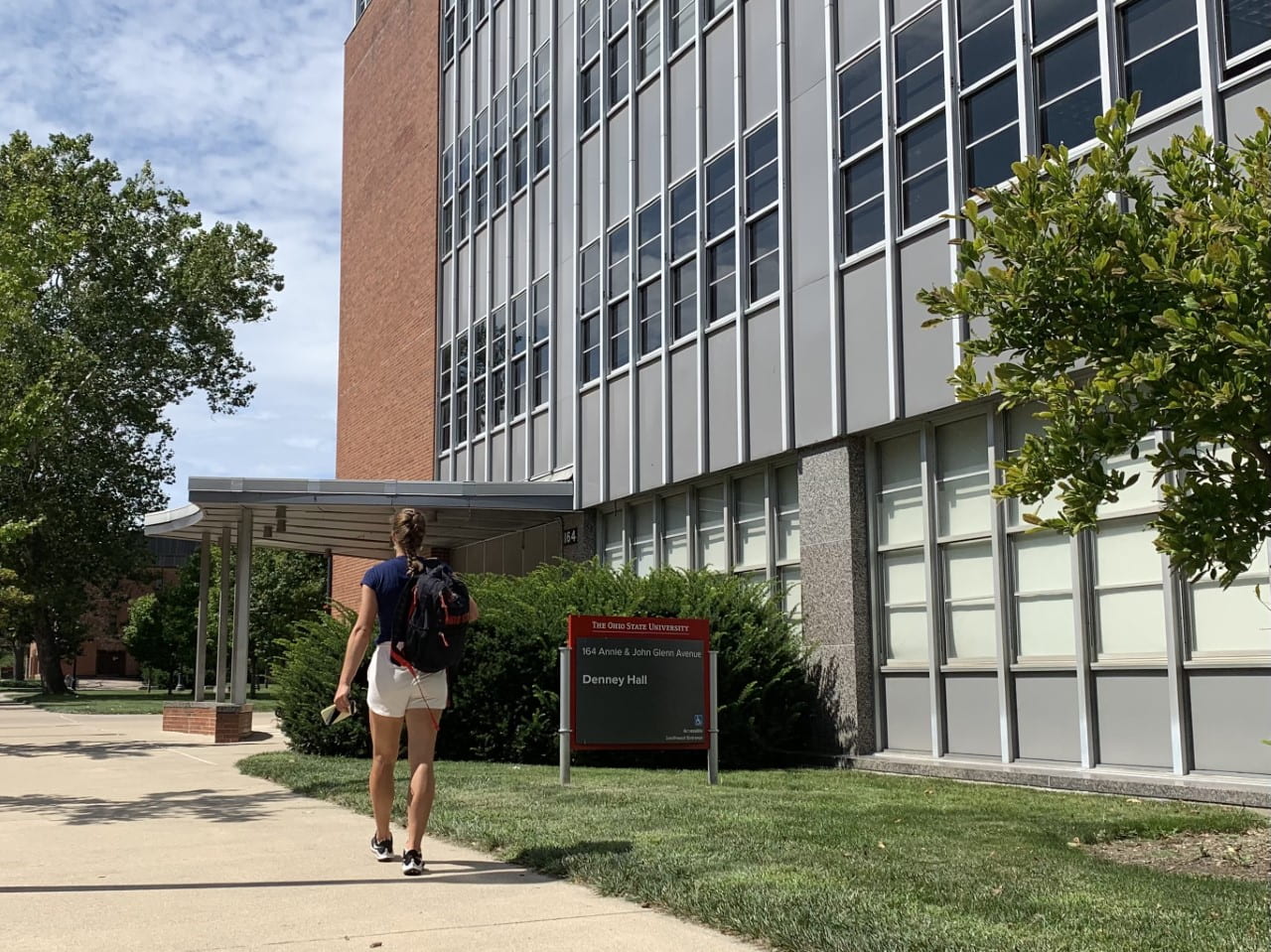
Instead of sticking to Shakespeare, Chaucer or Bradstreet, students can opt for classes that cover folklore, magical creatures, TV shows and other pop culture phenomena to fulfill general education requirements. Credit: Kathleen Jones | Lantern Reporter
Professors within the English department at Ohio State have found ways to incorporate conversations about Jon Snow and Dracula into their curriculums.
Students have the option to take popular culture-filled courses to spice up and fulfill general education requirements. Instead of sticking to Shakespeare, Chaucer or Bradstreet, students can opt for classes that cover folklore, magical creatures, TV shows and other pop culture phenomena.
“That’s living literature,” Karen Winstead, a professor in the department of English, said. “That’s literature that people read because they want to read it, not because somebody told them that they need to read it.”
Winstead teaches English 3364, “Special Topics in Popular Culture — Vampires,” a class that she concludes with a variety of unique final assignments.
One of the assignments asks students to imagine themselves from the perspective of five characters they have learned about throughout the semester and then write a paper about what they would discuss with one another at a vampire convention.
“That kind of prompt asks students to tell a story and to use their imaginations, but it’s basically the same sort of, it requires the same skills as a more conventional essay prompt,” Winstead said. “Compare and contrast XYZ themes in five of the vampire texts that we’ve read so far. It’s the same thing, only packaged different.”
Elizabeth Renker, a professor in the English department, said she uses the close-reading method in her English 2261 course, “Introduction to Fiction — ‘Game of Thrones’ as Literature,” which teaches students to analyze media in depth for literary techniques.
Renker requires students to watch the entire show before beginning the course. After that, they rewatch an episode per class and have extensive, guided discussions about the literary language used in the show.
“It’s not a class about memorizing things to repeat them on an exam, it’s a class about thinking,” Renker said. “They can’t learn these methods unless they actually apply them themselves.”
Renker said the importance of her course, which most of her students use to fulfill a general education requirement, lies in its use of popular culture as a teaching tool.
“A lot of these students will not take another class in literature,” Renker said. “So, for me as a teacher, this class is important, among other reasons, because it teaches students using something that they love.”
Rachel Stewart, a graduate student in English, said the vampire course Winstead taught changed how she looked at popular culture. She took the class during her second undergraduate year, just after switching into the English major.
“It just really opened up my mind to the possibilities of what I actually could do in my degree and then, you know, how many years later, here I am, as a graduate student, focusing on vampires in popular culture and historical popular culture as my career path trajectory for the rest of my life,” Stewart said.
English 1110, a first-year English composition course, offers various sections with different themes. Stewart teaches her section with a vampire theme, something that was heavily influenced by her past enrollment in Winstead’s course.
“It was the thing that showed me, like, ‘Oh, this passion of yours can actually be something that you can teach others about and keep looking into,’ ” Stewart said.
Teaching popular culture is a useful way of incorporating things that people enjoy into their education, Stewart said.
“I think a lot of people don’t realize that you can study a TV show in an English course and things like that, that English encompasses the way that you look at media, rather than what type of media you’re looking at,” Stewart said.


